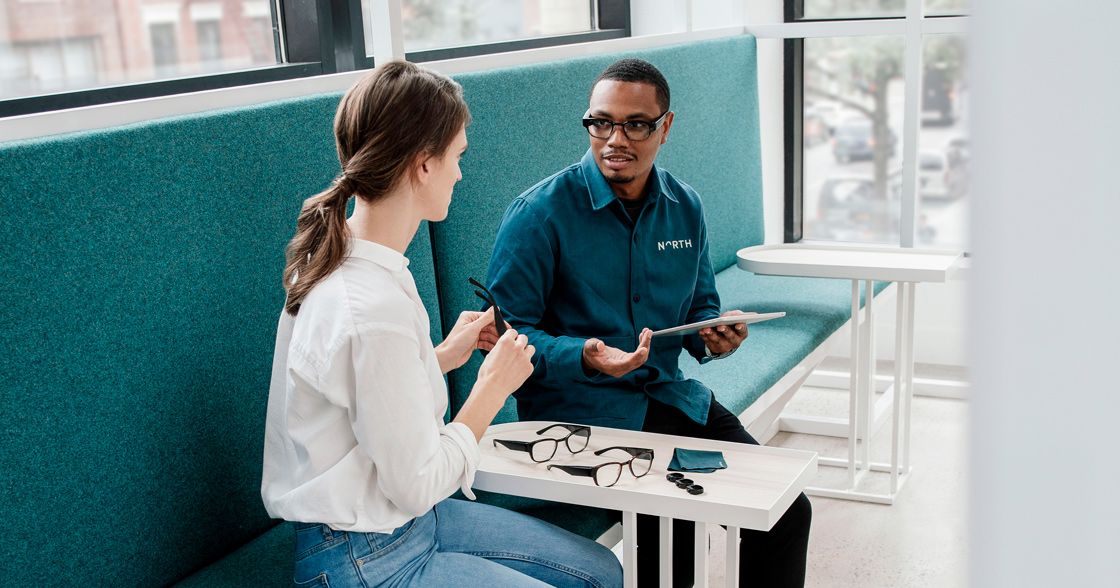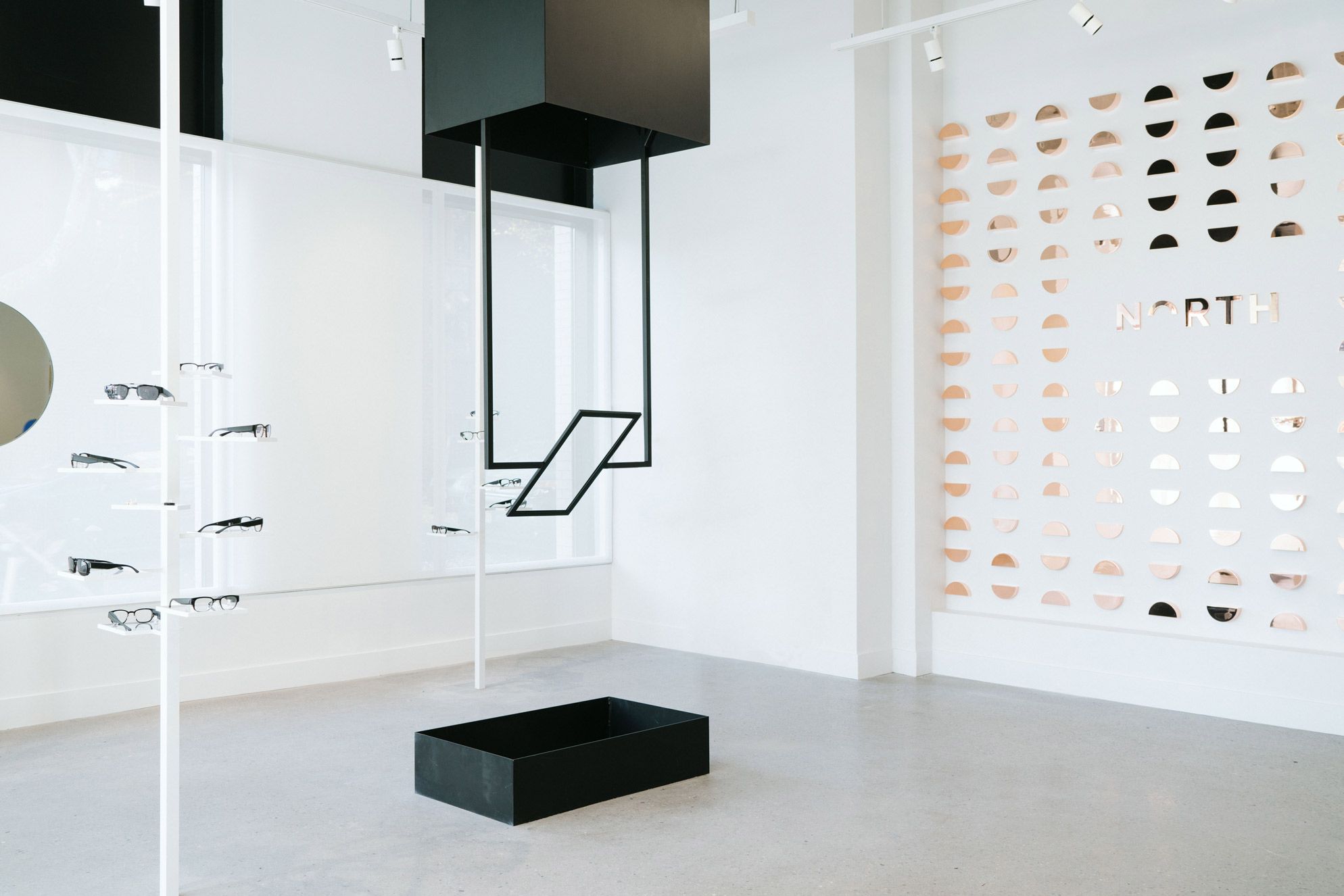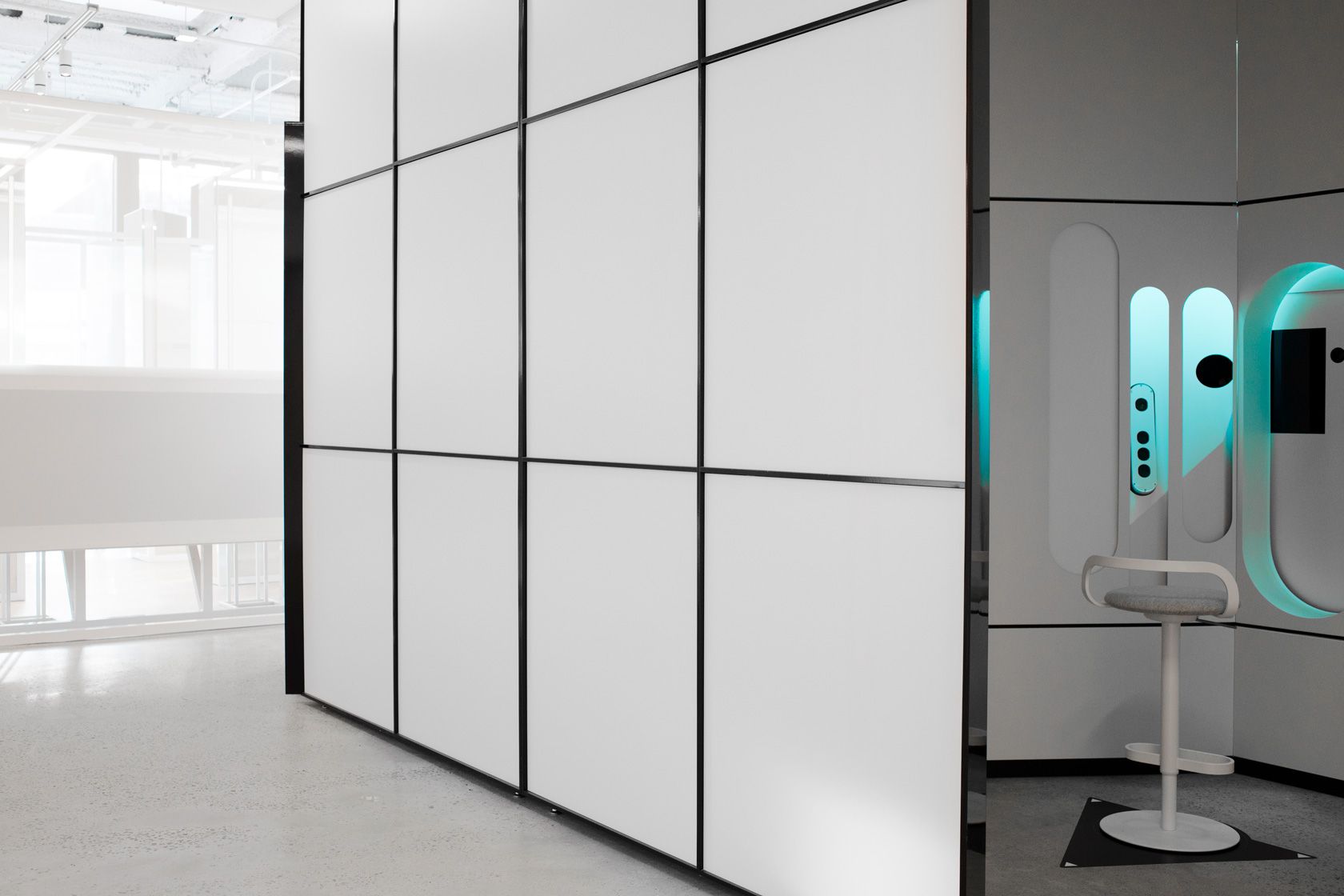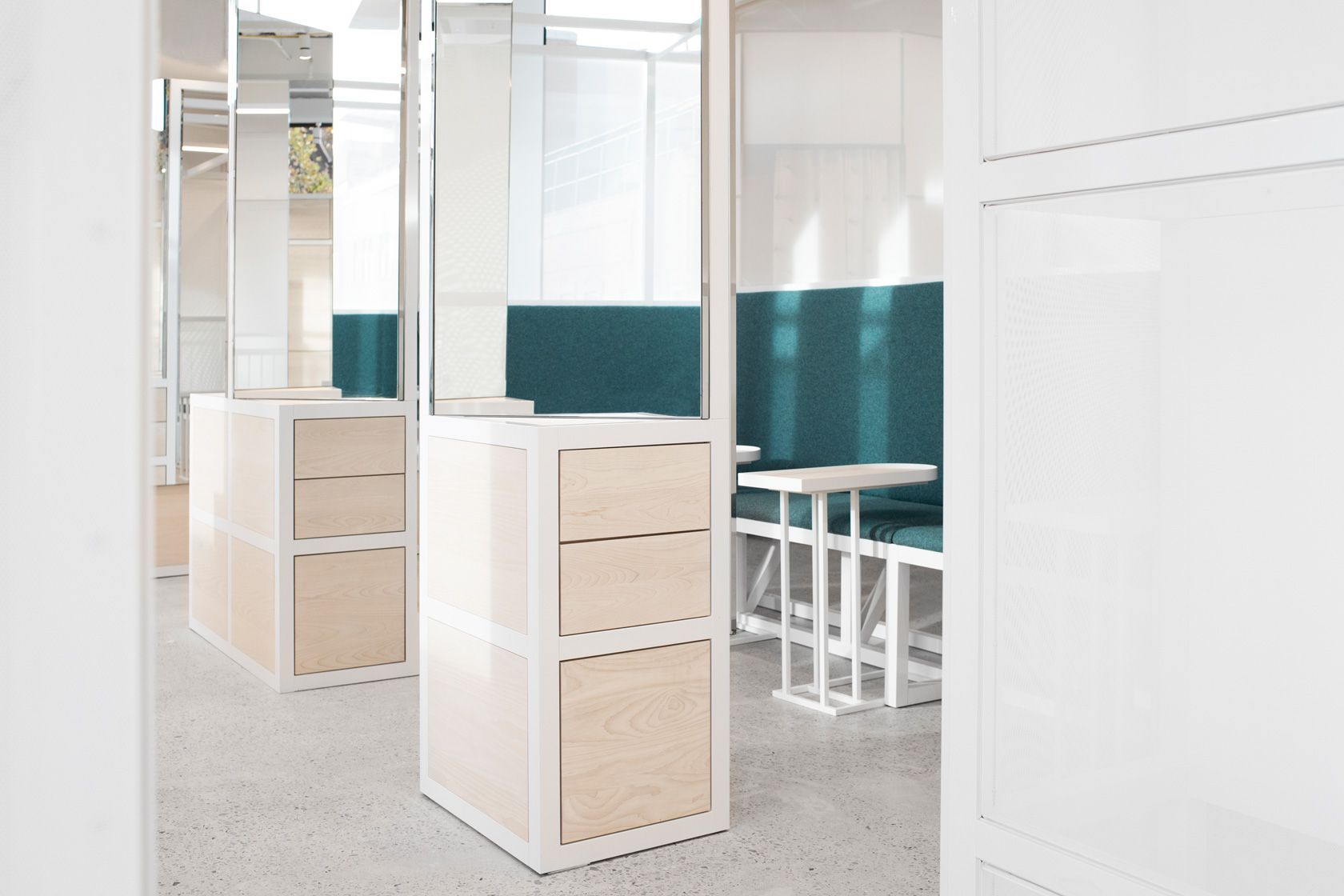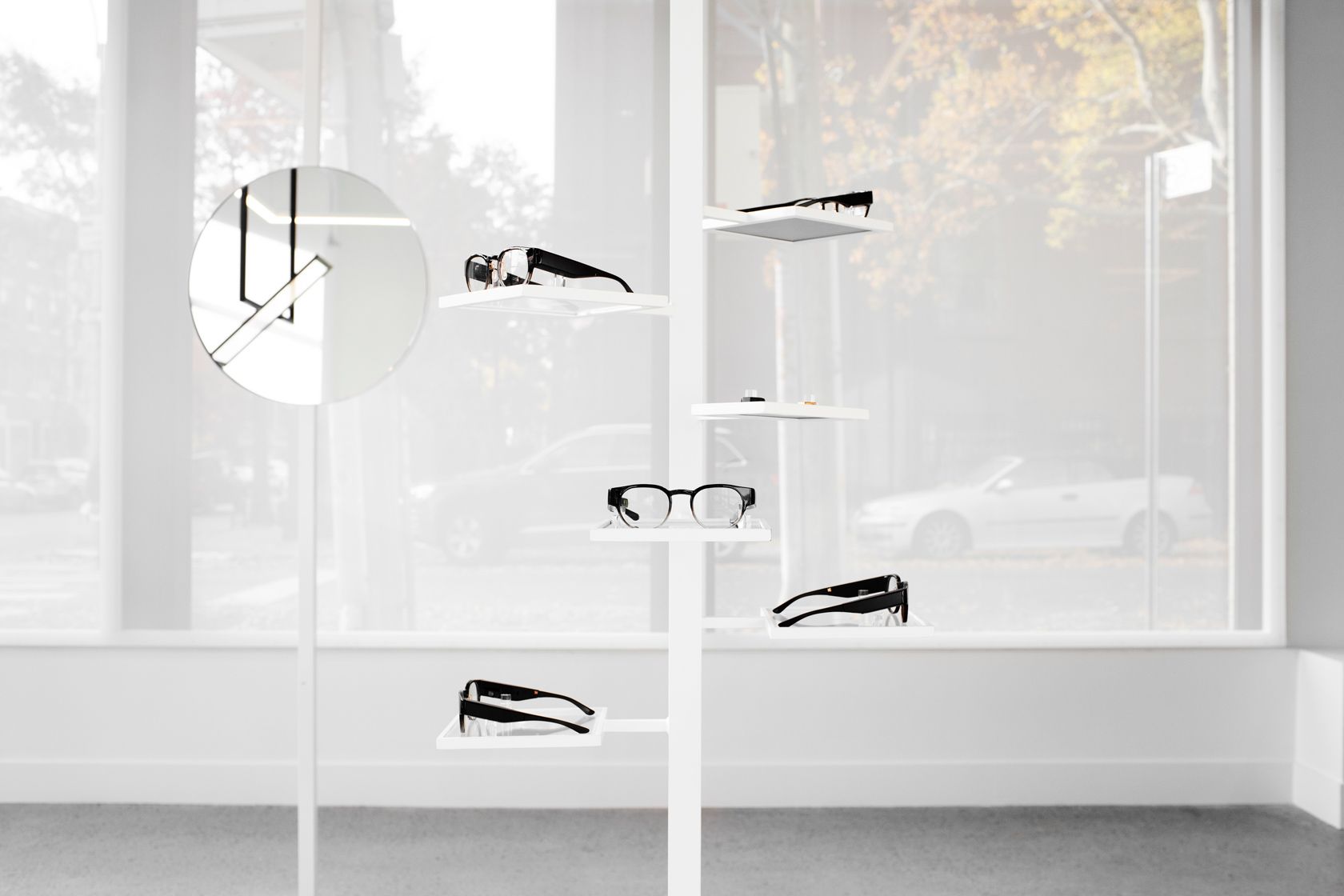At the Pepcom Digital Experience taking place during CES 2019, North co-founder Aaron Grant is approached by another smart glasses vendor, who extends a pair for him to try on.
In an “I’ll show you mine if you show me yours” moment, Grant slaps a pair of Vuzix Blade smart glasses on for a quick demo [see featured image at top]. It’s exactly the same thing that the busy North team is facilitating for hordes of bloggers and journalists that approach the Focals by North booth.
“It’s going great so far, I’ve had a number of different folks just put the glasses on and actually try them for the first time,” Grant says. “It’s really a product where you can kind of explain it and talk about it, but you actually have to try it to really understand it.”
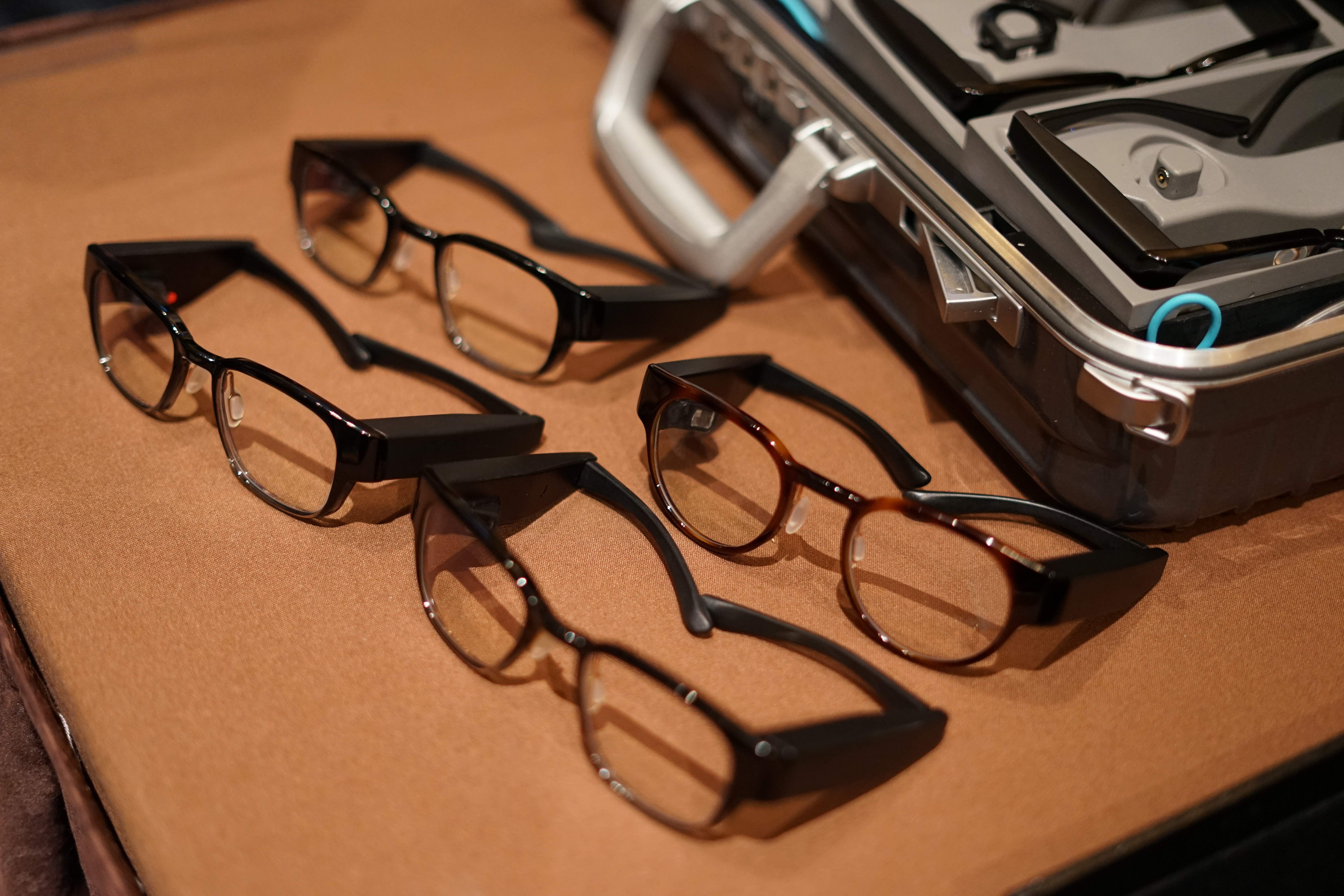
The importance of that simple act of putting the glasses on is just one of that’s come into focus for North in the short time it’s operated a retail operation for a brand new category of product.
While both Vuzix and North are selling smart glasses, their go-to-market strategy is entirely different. Vuzix focuses on a partner program to get its smart glasses to businesses that could boost productivity by distributing them to workers that constantly have their hands busy. Waterloo, Ont.-based North (formerly Thalmic Labs) is eyeing a direct-to-consumer approach complete with an Apple-esque retail experience.
Last October, North announced its rebranding and unveiled its new smart glasses product to the world. Co-founder Stephen Lake wrote that a five-year journey to create smart glasses that look like regular glasses. At the same time, the firm was preparing for its foray into the retail space. In June, it hired Adam Ketcheson as chief marketing officer, who previously had worked with outdoors apparel retailer Arc’terix Equipment Inc. That Vancouver-based firm has 32 branded stores worldwide – North is starting with two showrooms in Toronto and Brooklyn, with more locations planned for the future.
Before those stores are opened later this year, Grant and his team will look at what they’ve learned from the first two.
“The biggest thing [we’ve learned] is that the stores are massive and they don’t need to be as big,” he says. “As we made them we really designed the stores initially for throughput and what we kind of learned after the fact is that it’s actually a lot more about the experience of just coming down, come in, sitting down, trying them on and learning what this product is and what it can do for you.”
At the Pepcom booth, North employees work around cases containing different sizes of Focals. They try their best to judge the person’s head size and shape and pick out the right pair for them to try on. (One employee handed over his own pair to me after I didn’t have any luck with the other sets. By putting them on and holding them in my right hand, I was able to see the UI and interact with it.)
“We have two big problems to solve – we have to convince people why they should buy smart glasses at all. And then we have to convince people why they should buy these smart glasses,” Grant says. “What we’ve kind of found is that solving that just requires getting people to actually try them on and use them. And we found that it’s a lot more important than maybe we initially thought.”
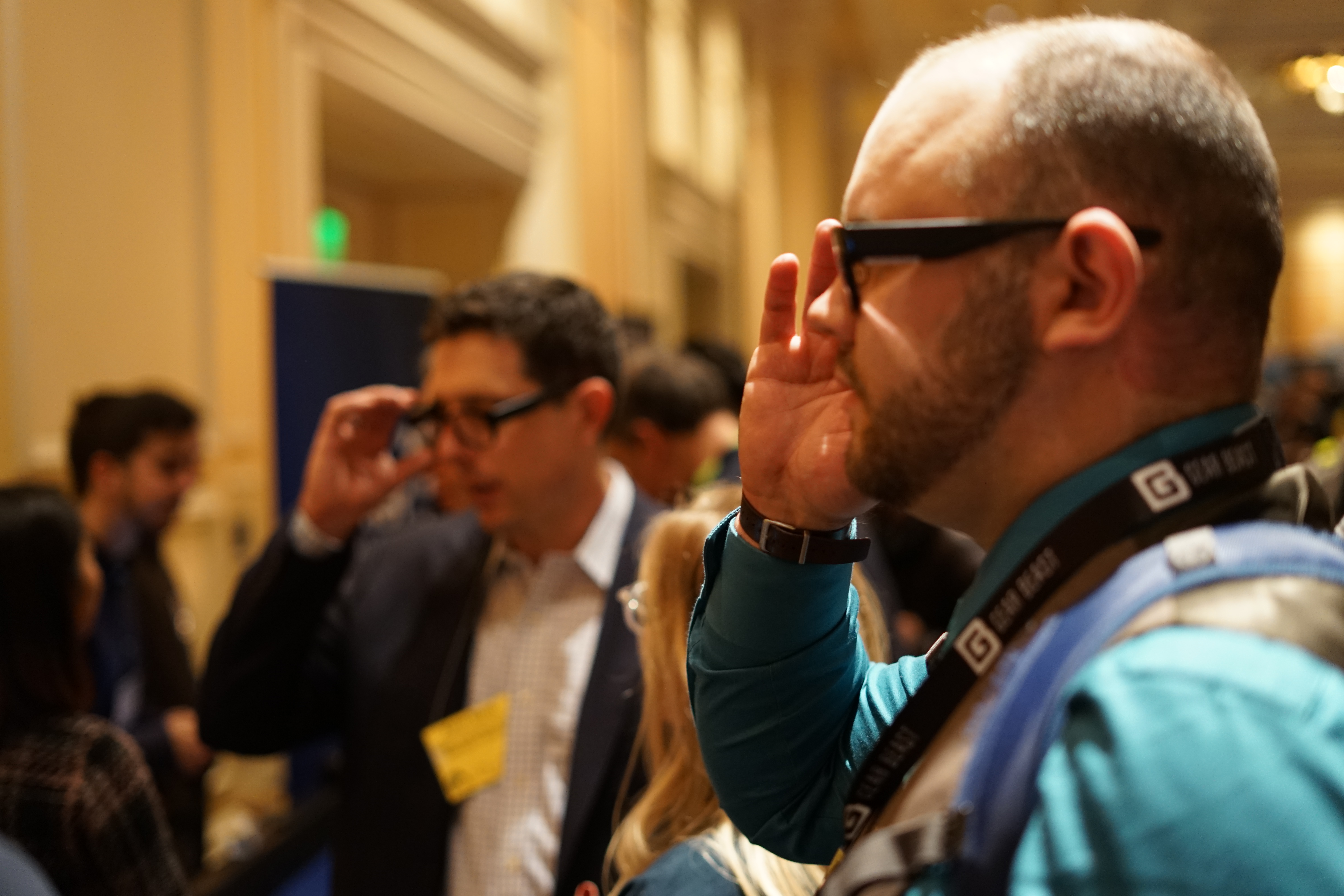
Once a prospective customer peers through the lens, seeing the unintrusive and hovering UI in front of them displaying the weather, calendar notifications, and turn-by-turn navigation, the purpose of the device clicks. The challenge for Focals is getting to that point, as its smartglasses require a precision fit in order to work correctly. Each buyer sits down to have their head 3D-scanned so the glasses can be custom-made in Waterloo.
It’s getting interested customers to that point in the buying journey is the real trick. In the Toronto and Brooklyn retail stores, North has tried to showcase its UI with a transparent glass panel, making it appear as though it’s floating in space similar to the glasses experience. But that falls short of actually having customers try it on for size, which is why North is now offering some pre-sized Focals in stores as a demo.
“No two retail stores are going to be the same. You need to have a plan that’s flexible enough and resilient enough just to adapt to whatever happens, because people are unpredictable,” Grant says. “You’re going to design something, you’re going to build it, and then you’re going to learn and you’ve just got to adapt as quickly as possible.”
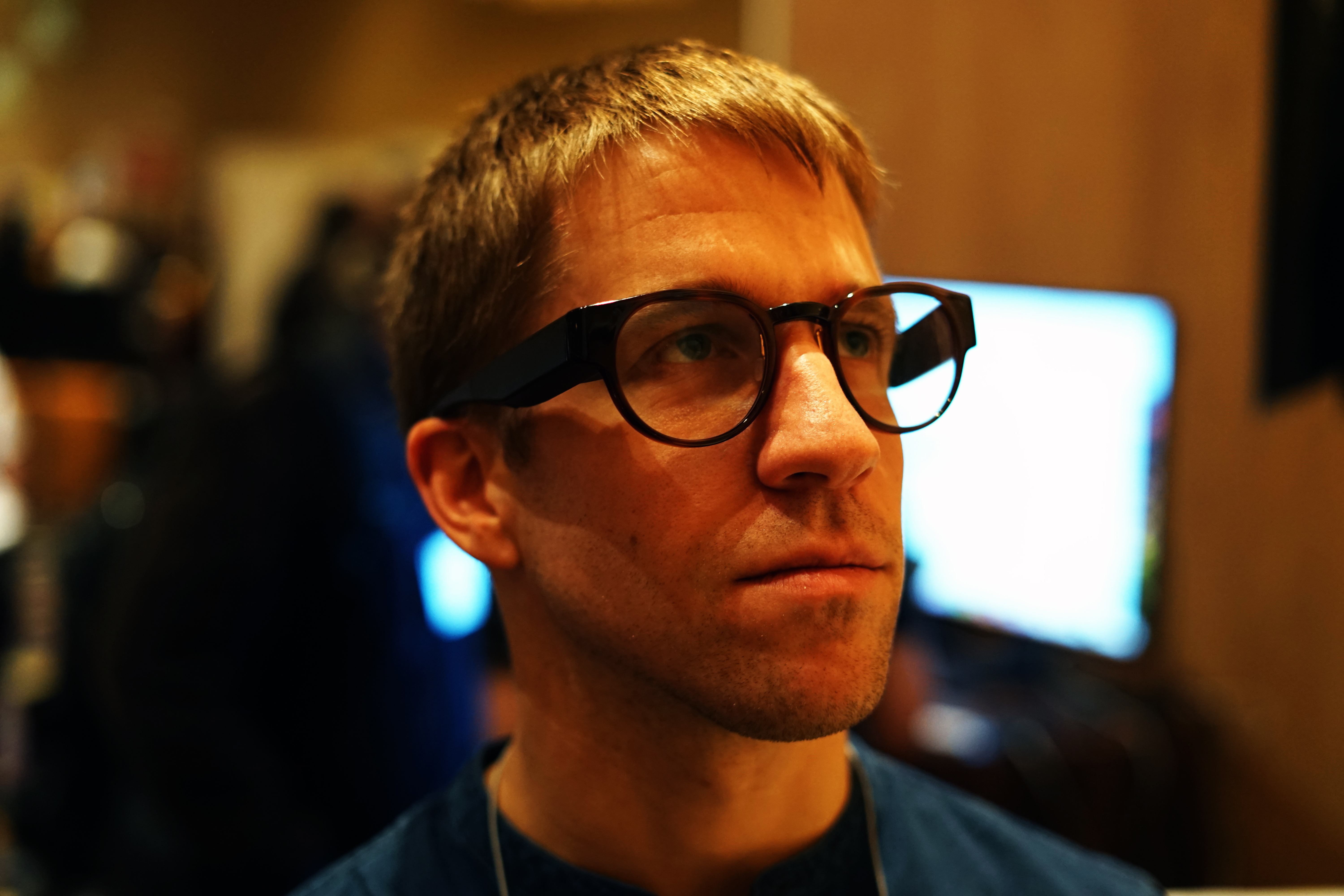
Helping it solve those changes is San Francisco-based architectural design firm Envelope a+d, which has helped design spaces for The French Laundry, Aether Apparel, and the San Francisco Museum of Modern Art.
North will ship its Focals to its first paying customers that have come through its retail experience for the first time on Jan. 24. So far it hasn’t spent a ton on advertising for its product, instead focusing on getting a beta version of Focals into the hands of press and influencers, to create a buzz by word-of-mouth.
At the same time it’s figuring out the retail business, it’s still building out its new product category, solving challenges that no manufacturer has tackled before. In a couple of months time, it will start selling Focals to people that already need glasses to correct their vision.
“There’s a lot of brand new technology in here where there’s no other company in the world that’s every manufactured things like this, like a prescription lens with a holographic film for example, nobody’s done that before,” Grant says. “People had actually tried and said, you know, there’s no way you’re going to be able to embed that hologram in a curved lens and not have it get destroyed during that process.”
Whether North’s early retail efforts with Focals are a success, we don’t know. The firm’s not sharing how many devices it’s shipping come Jan. 24. But If it can solve problems that no other manufacturer has, maybe it has a shot at succeeding in retail too.





